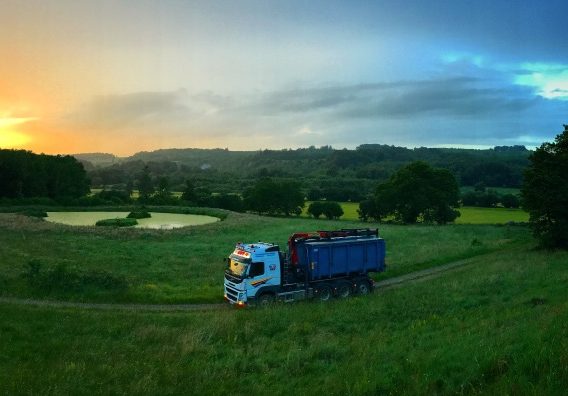
Sustainability and safety
Environmental and sustainability issues are high on Konvex’s agenda. As a customer of ours, you can trust that we do everything to minimize our environmental impact, while our business also contributes to closing the cycle.
At Konvex, we are proud of the work we already do today, but we never settle down. We constantly strive to be able to work even more environmentally smart, in step with technological progress.

We give back nature’s resources
Konvex operations create great value for nature, as we transform residual products that cannot become food and give back to nature. The residual products that we collect in the southernmost parts of Sweden are reloaded in Krutmöllan, and then exported to Denmark for biodiesel extraction.
The residual products that we pick up in Jönköping and north go to our factory in Karlskoga. There, they are processed into an energy raw material (biomal) which is then delivered with tankers to category 1-approved heating plants. Biomalen is thus used to heat a large number of villas, a heating alternative with large environmental benefits.
Our proud values
At Konvex, there is a natural pride in what we do. Partly because we really contribute to a sustainable society through the environmental and sustainability thinking that runs throughout the business. We are constantly looking at how we can develop even more, in order to make even greater contributions to the environment.
On the one hand, pride is rooted in our way of being, both internally and externally. We are a loyal company, which cares for both our customers and employees. Of course, we never compromise on laws and regulations and as a customer you can count on us always being updated on the latest in the industry.

We guarantee veterinary safety
Swedish food production is world-class and Swedish agriculture has among the lowest antibiotic use in the whole world, which we Swedes should be proud of. We have a good organization, where security from farm to fork is very high.
The high level of security that we have in the Swedish food and agricultural sector is the fruit of a very strong collaboration between different actors. In this system, where knowledge and experience are shared, Konvex is an important part. We guarantee that the collection of residual products takes place in a safe manner, among other things to minimize the spread of infectious diseases. Through a high level of veterinary security, we contribute to strengthening Sweden’s role as a strong food producer.
